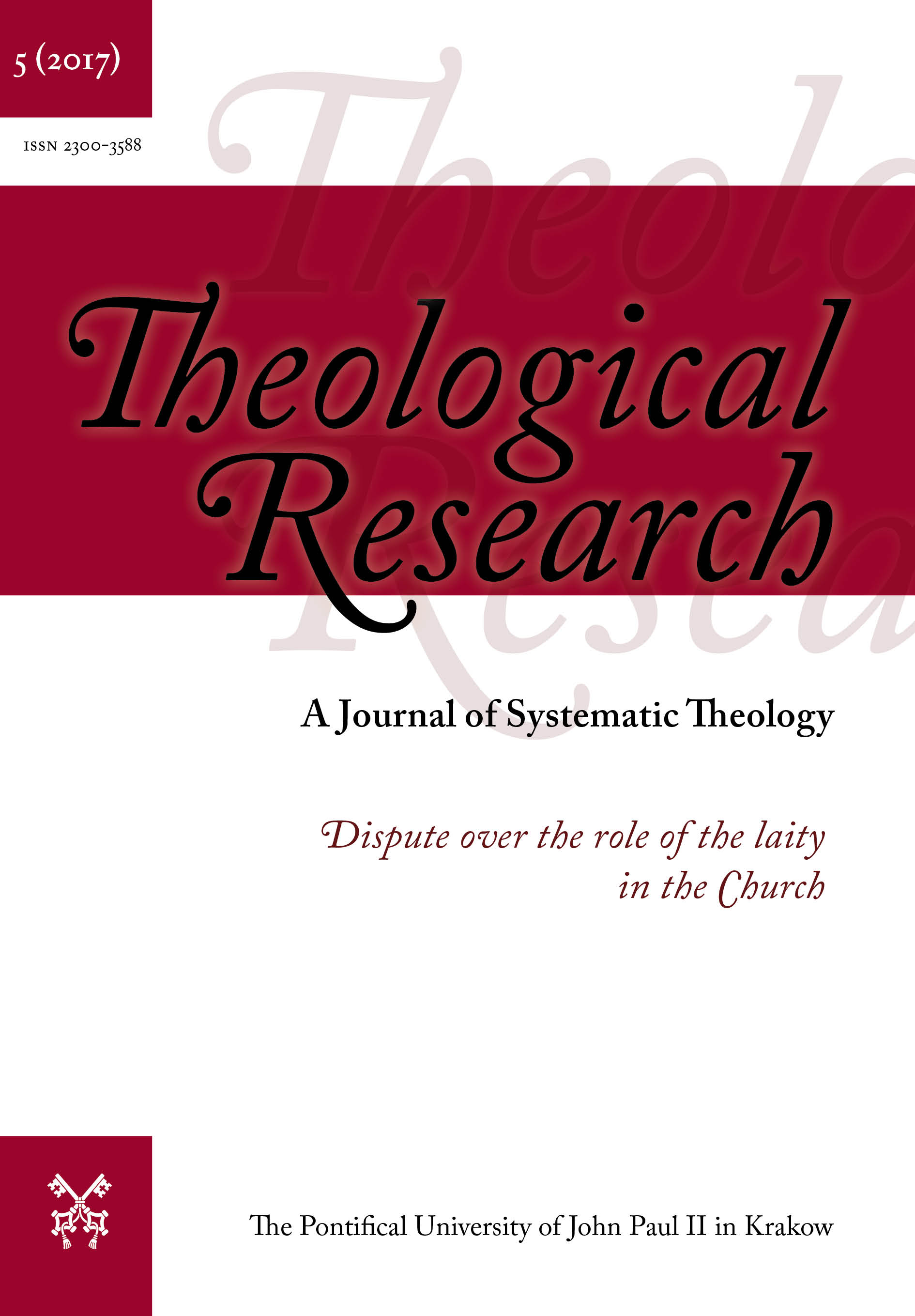Luther’s ‘Metaphysics’ in Heidegger’s Beiträge
DOI:
https://doi.org/10.15633/thr.3304Słowa kluczowe:
Heidegger, Luther, St. Paul, ontotheology, deconstructionAbstrakt
This essay argues that Luther’s “metaphysics” is present in Heidegger’s Beiträge zur Philosophie (Contributions to Philosophy), a text many consider to be Heidegger’s second magnum opus. I argue that Luther’s “metaphysics” is present in Heidegger’s Contributions in primarily two ways: (1) there is a Lutheran structure (of existential categories) that Heidegger appropriated not only in Being and Time, but also much earlier in his lectures on St. Paul from the 1920s, of responding to a call and converting in anxious anticipation toward a futural not-yet (what Heidegger calls “the last god”); and (2) Contributions’ project concerns overcoming metaphysics, which involves first thinking through to metaphysics’ conditions for possibility, which means recognizing the “ironic nature” of beyng via what Heidegger calls “thinking concealment,” the logic of which originates in Luther’s attacks on not only Greek metaphysics, but upon Judaism and the Mosaic law as well.
Bibliografia
Armitage D., Heidegger’s Pauline and Lutheran Roots, New York 2016.
Luther M., Selections from His Writings, ed. by J. Dillenberger, New York 1962.
Luther M., Lectures on Romans, Philadelphia 1961.
Heidegger M., Contributions to Philosophy: Of the Event, trans. by R. Rojcewicz, D. Vallega-Neu, Bloomington 2012.
Heidegger M., Gesamtausgabe 65: Beiträge zur Philosophie: Vom Ereignis, Frankfurt 1989.
Pobrania
Opublikowane
Numer
Dział
Licencja
Autrzy publikujący w czasopiśmie "Theological Research" zgadzają się na następujące zasady:
a. Autorzy przenoszą na rzecz Uniwersytetu Jana Pawła II w Krakowie (UPJPII) autorskie prawa majątkowe do swoich tekstów.
b. UPJPII udostępnia teksty na platformie wydawniczej, na licencji Creative Commons Uznanie autorstwa-Użycie niekomercyjne-Bez utworów zależnych 3.0 Polska, która umożliwia ich pobieranie i udostępnianie (np. w repozytoriach naukowych), o ile zostaną spełnione warunki:
- podany autor i tytuł tekstu,
- podane miejsce publikacji (tytuł czasopisma i adres internetowy do oryginalnie opublikowanego tekstu),
- tekst będzie dystrybuowany w sposób niekomercyjny.

